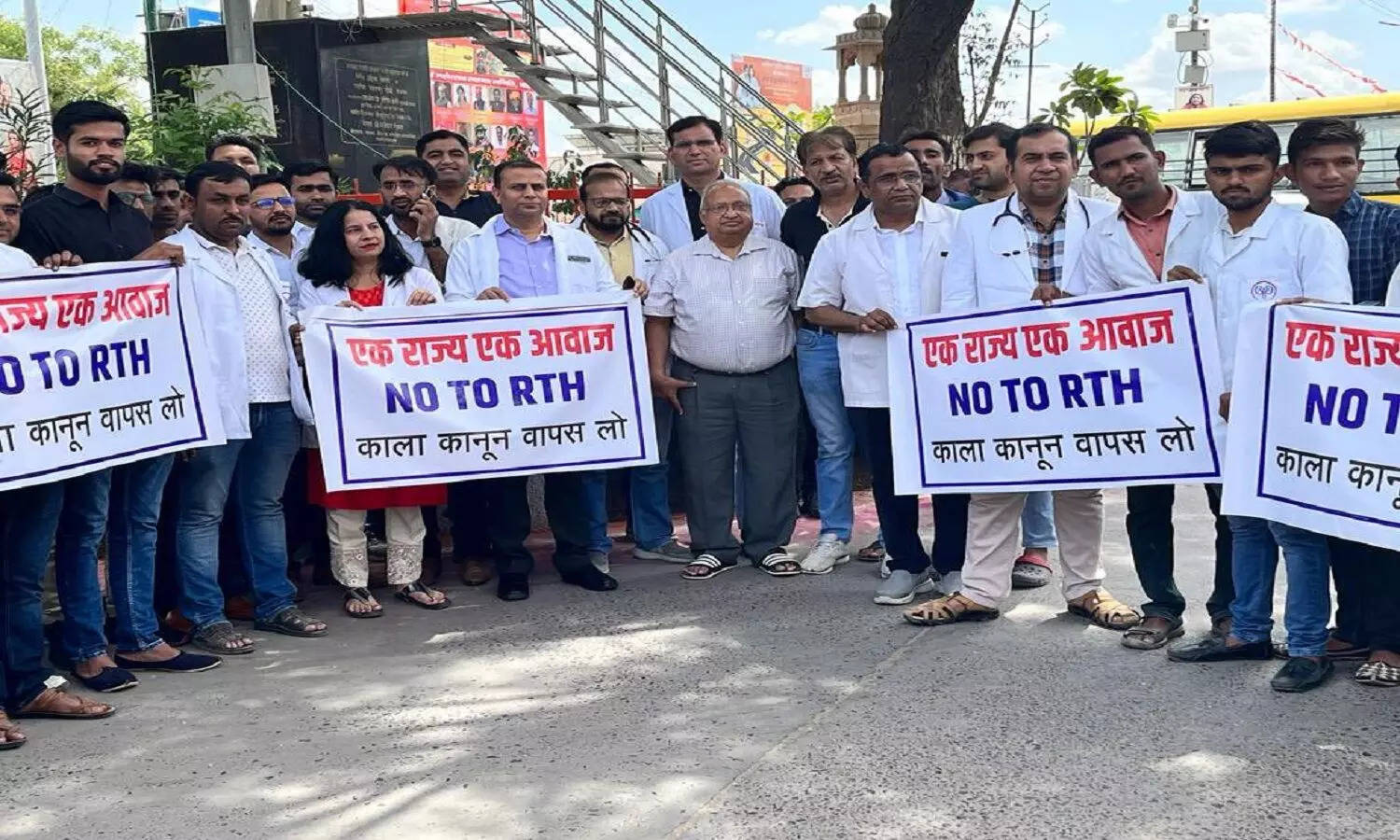Rajasthan's Game-Changing Right to Health Bill: A Lifeline for Patients, But at What Cost to Medical Professionals?
The Right to Health (RTH) Bill, which was approved by the Rajasthan Assembly on March 21 amid ongoing protests by doctors, has been met with resistance from medical professionals who demand its complete withdrawal. Approximately 2,500 private hospital operators throughout the state joined the protest.
The legislation mandates that no hospital or doctor, whether government-run or private, can deny emergency treatment to anyone. Emergency care includes assistance in cases of accidents, animal or snake bites, pregnancy complications, or any other emergency determined by the state health authority. Patients are not required to provide advance deposits or pre-payments for treatment or diagnostics, even in private facilities. If a patient is unable to pay for their care, the state government will cover the costs and transfer the patient to another facility as needed.

Beyond emergency care, the law also grants individuals access to free healthcare services at government-run institutions, healthcare establishments, and designated health centers. Additionally, patients have the right to choose where they purchase medicines or undergo lab tests, preventing private hospitals from requiring in-house pharmacy usage. Hospitals and doctors violating the Act face a fine of Rs 10,000, which increases to Rs 25,000 for subsequent violations.
While the Bill appears highly beneficial for patients, particularly those who cannot afford private healthcare, doctors and private hospitals express concern about their own vulnerability. They argue that the RTH Bill could eventually lead to the elimination of private hospitals, undermine doctors' ability to earn a living, and deprive the public of around-the-clock medical services. Additionally, they believe the government is shifting its responsibilities onto private practitioners and express concern over unclear reimbursement procedures for treating patients who cannot afford care. Doctors also worry that improper implementation of the Act could further strain the relationship between patients and medical professionals.
Related Articles
Unleashing the Potential of Telemedicine: A Comprehensive Guide to Setting Up a Practice in India
Introduction: Telemedicine is the practice of providing healthcare services remotely through the use of electronic communication and information technologies. It has become increasingly popular in recent years, especially during the COVID-19 ...Unleashing the Power of Natural Healing: A Step-by-Step Guide to Setting Up a Homeopathy Center in India
Here are some key steps to follow when setting up a homeopathy center in India: Obtain the necessary qualifications: To practice homeopathy in India, you will need to obtain a degree in homeopathy from an accredited institution and pass a licensing ...Revolutionizing Rehabilitation: A Step-by-Step Guide to Setting Up a State-of-the-Art Physiotherapy Unit in India
Here is a step-by-step guide to setting up a physiotherapy unit in India: Obtain the necessary licenses and permits: Before you can start practicing as a physiotherapist in India, you will need to obtain the necessary licenses and permits. This ...

